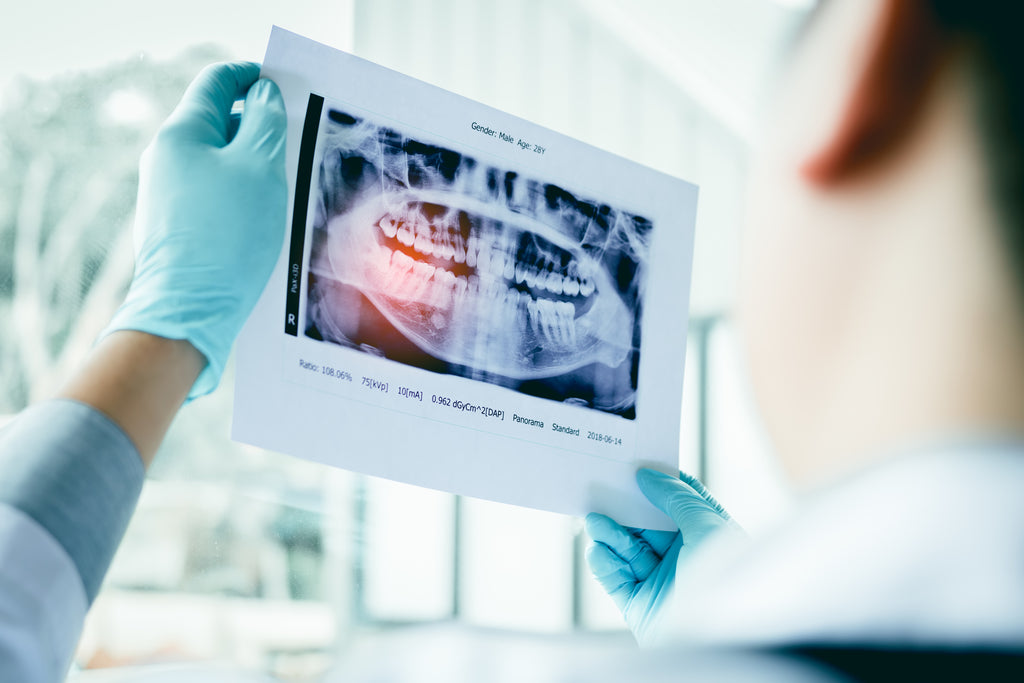A topic of great interest in the dental field concerns the ability of adult stem cells to generate various tissue-specific cell populations. Since these cells can replace damaged cells, they represent a good alternative to classical medical treatments for tissue regeneration - and may even allow the formation of entire tissues and organs in the future.
While dental epithelial stem cells are able to generate all epithelial cell types of the teeth, it wasn’t clear if these cells could also produce non-dental cell populations. So researchers showed that - for the first time - epithelial stem cells isolated from the continuously growing incisors of young mice are able to form mammary glands in female mice. After removing all cells of mammary origin, dental epithelial stem cells and mammary epithelial cells were directly injected into the areas where the mammary glands normally develop.
The researchers used advanced genetic, molecular and imaging tools that allow the precise follow-up of the transplanted dental stem cells in the mammary gland fat pad of the animals. This work - published in Cells - demonstrated the exceptional plasticity of dental epithelial stem cells to generate not only dental tissues but also other tissues of the body. In a second set of experiments, dental epithelial stem cells were injected alone, without mammary epithelial cells. In this case, the dental stem cells were also able to form small ductal systems consisting of branching rudiments. However, in some cases this resulted in the formation of cysts. "The results show that the dental stem cells contribute to mammary gland regeneration, and are able to generate all mammary cell populations and, even more strikingly, milk-producing cells," says Thimios Mitsiadis, professor at the Institute of Oral Biology of the University of Zurich (UZH). “These findings represent a major contribution to the understanding of the cellular and molecular mechanisms involved in the regenerative capacity of dental stem cells, and, furthermore, indicate the clinical potential of these specific stem cell populations,” Mitsiadis continued. “Our discovery that dental epithelial stem cells are able to replace cells from the mammary gland opens up new paths for developing stem cell-based therapies that could be used for breast regeneration in the future."
New Molecules For Tooth Loss And Regeneration
Research published in the Journal of Dental Research shed light on the science behind the formation of the periodontal ligament, which helps keep the tooth stable in the jawbone. This improved understanding will also help scientists work towards regenerating the tissues that support teeth. The study shows how a signaling pathway called Notch, which is known to be activated in stem cells and cancer, is important for periodontal ligament development. Abnormal activation or inhibition of certain signaling pathways can lead to cancer and other conditions, including problems with tissue regeneration.
One of the key findings was that Lamin A, a cell nuclear protein, is a direct target of Notch pathway. Lamin A is best known for its mutated form progerin, which causes fatal “early aging” disease, Progeria syndrome. By uncovering its involvement in periodontal ligament formation, scientists have better insight into how molecules function during tissue regeneration, and how the process could be affected during disease. "The periodontal ligament starts to properly hold the tooth in the jawbone when a tooth breaks out and becomes functional,” says Dr. Bing Hu, Associate Professor of Oral and Dental Health Research in the Peninsula Dental School at the University of Plymouth. "Understanding the mechanisms of how periodontal ligaments develop and the molecules that assist the tissue becoming mature is really important for our understanding of tissue regeneration and repair. The next steps are for us to see if and how the molecules we have identified in this study can be translated into a human-only model and, in turn, how they are affected in both healthy and diseased conditions."
"We believe that our findings are an important stepping stone to better dental treatments in situations involving the periodontal ligament, such as gum disease or periodontitis, tooth restoration by dental implants or orthodontic tooth movement," added Dr. Balázs Dénes of the University of Geneva.
Looking for a 100% all-natural liquid tooth oil and mouth rinse? Check out OraMD Original Strength and OraMD Extra Strength. Subscribe to our Trusted Health Club newsletter for more information about natural living tips, natural health, oral health and skincare. If you are looking for more health resources make sure to check out the Trusted Health Resources list.
Written By:
With over 30 years of writing and editing experience for newspapers, magazines and corporate communications, Kevin Kerfoot writes about natural health, nutrition, skincare and oral hygiene for Trusted Health Products’ natural health blog and newsletters.
Reviewed By:
Founder Ray Spotts has a passion for all things natural and has made a life study of nature as it relates to health and well-being. Ray became a forerunner bringing products to market that are extraordinarily effective and free from potentially harmful chemicals and additives. For this reason Ray formed Trusted Health Products, a company you can trust for clean, effective, and healthy products. Ray is an organic gardener, likes fishing, hiking, and teaching and mentoring people to start new businesses. You can get his book for free, “How To Succeed In Business Based On God’s Word,” at www.rayspotts.com.





Are you aware of a new technique pioneered by Dr. Jeremy Mao and Edward V. Zegarelli Professor of Dental Medicine, and a professor of biomedical engineering at Columbia University at the Tissue Engineering, and Regenerative Medicine Laboratory? They can orchestrate the body’s stem cells to migrate to three-dimensional scaffold that is infused with the growth factor, which results in Stem Cell Dental Implants Growing New Teeth In 2 Months! Check it out!!! https://www.davidwolfe.com/stem-cell-dental-implants/